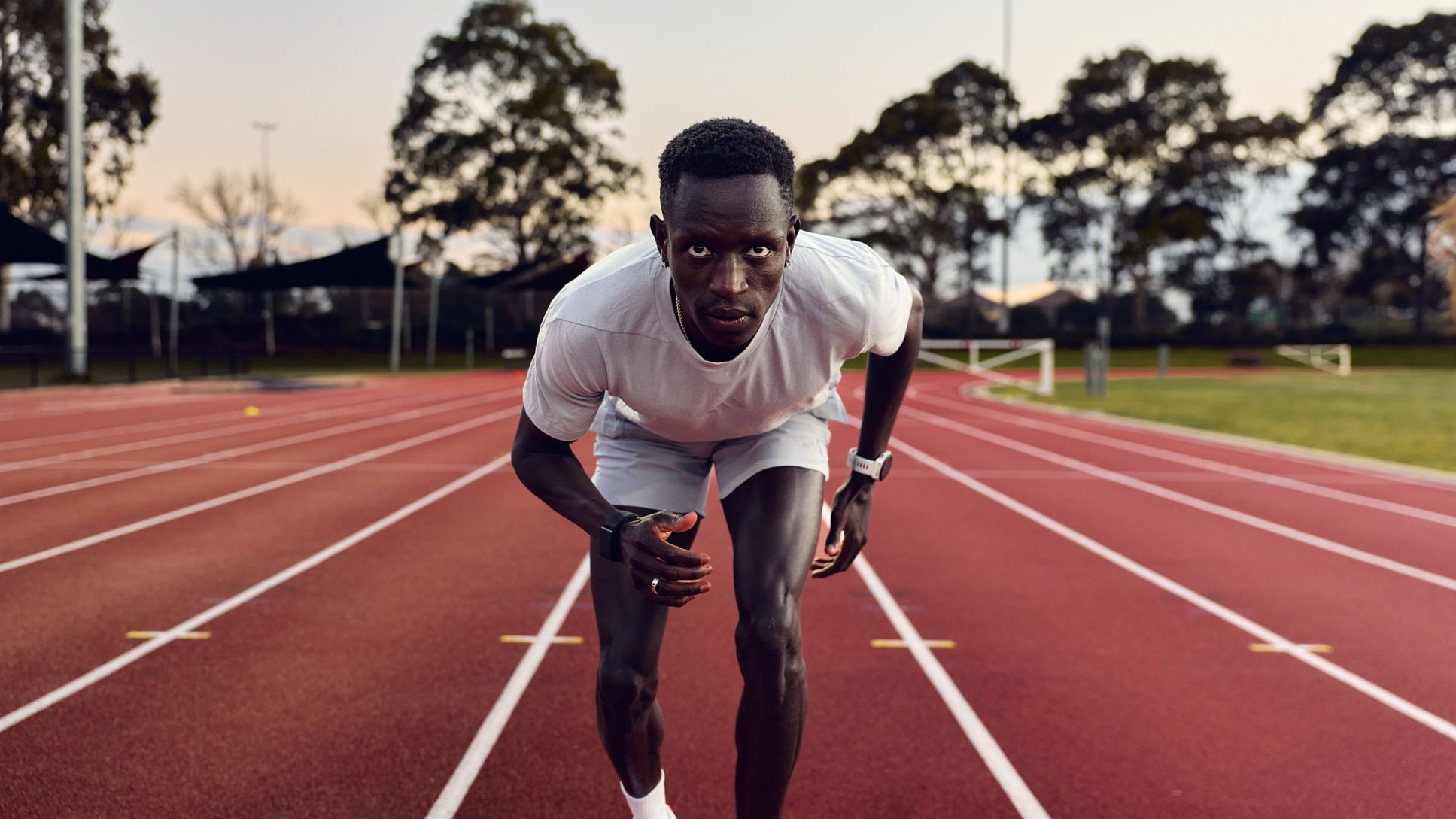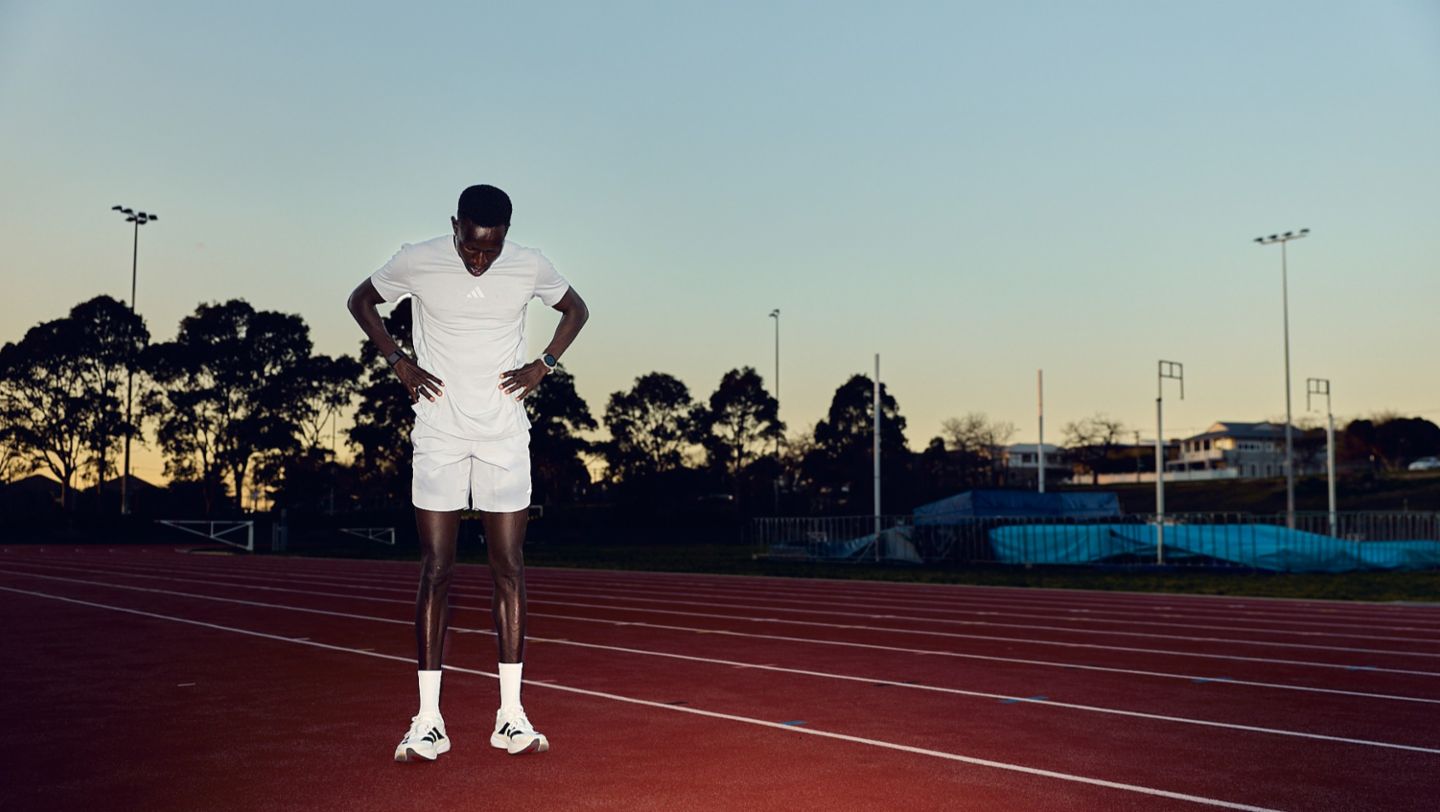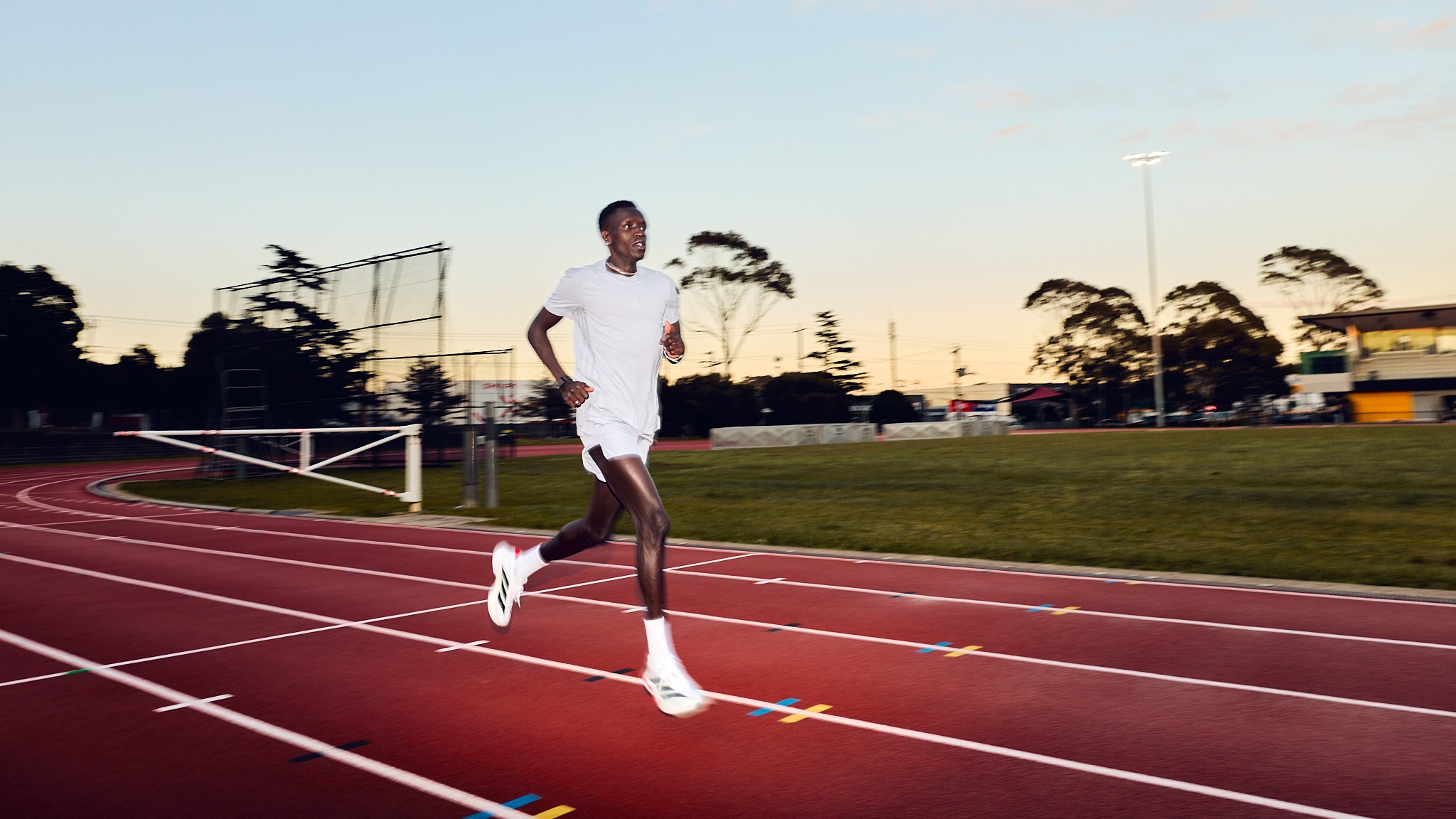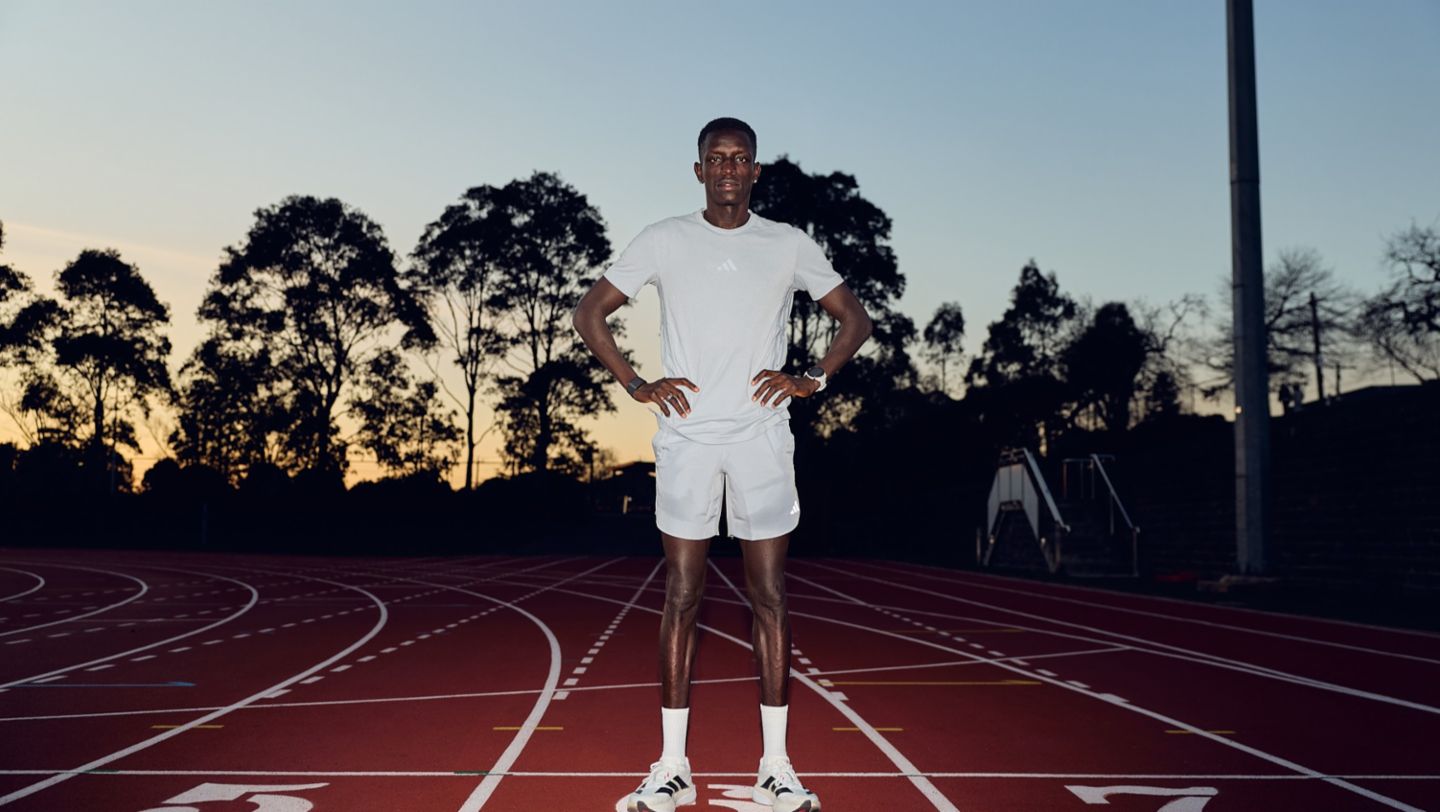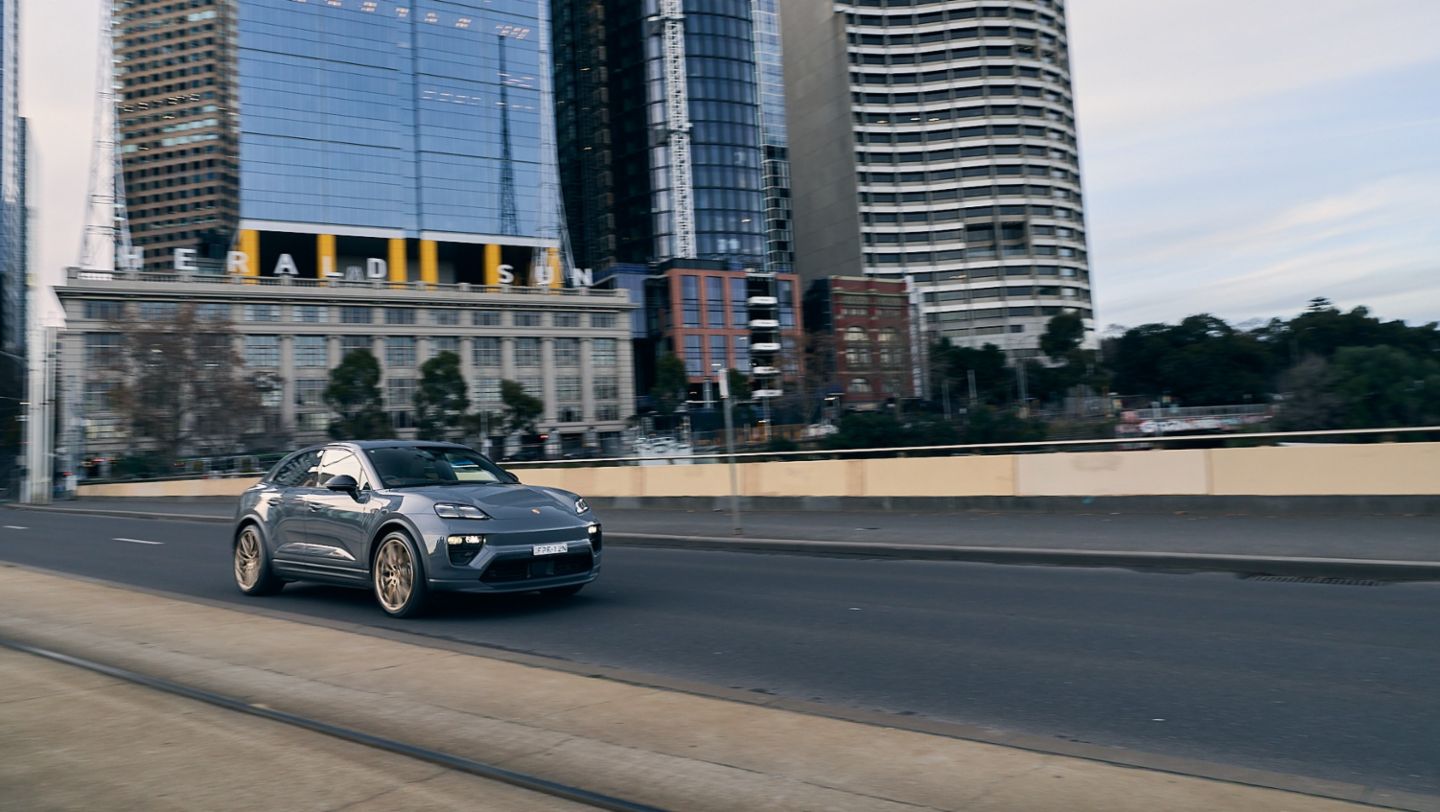Pareto Principle
When you ask Peter Bol if successful athletes need more mental strength or more physical strength to win, his reply is immediate.
“80/20,” he says, without hesitation. The Australian Olympic star is steering his Porsche Macan through the busy Melbourne CBD and he’s answering questions as quickly as he covers the 800 metres, the middle-distance running event he has made his own by setting and resetting its national record. Just like he knows where to place his Macan in advance of the city’s trams and hook turns, Peter Bol knows precisely what it takes to win against the world’s best in one of athletics’ most difficult events.
“Sport is 80 percent mental and 20 percent physical. When you’re on the start line, everyone’s physically fit. And at Olympic Games-level, that standard of fitness is extremely high. But what differentiates first place and eighth place in every race is how mentally sharp each runner is.”
It’s a special insight from an athlete who has dedicated half of his life climbing the highest ranks of competitive athletics. With three consecutive Summer Olympics under his belt, this Commonwealth Games Silver medallist knows the mental drive needed to consistently perform at this peak level. His carefully trained mindset is a powerful tool in his sporting armoury and is underpinned by a deep motivation.
“Over the years I’ve gone from being more externally motivated to focusing more intently on my own personal purpose,” he says, turning on to Melbourne’s Batman Avenue and towards Rod Lever Arena.
“Sport is 80 percent mental and 20 percent physical." Peter Bol, Australian Olympic athlete
Along with his fierce determination to win, running has long been a part of Peter’s self-expression. His sparkling athletics career has opened many doors away from the track and it allows him to share his hard-fought, high-performance wisdom with others.
“Running lets me connect with the wider Australian public, from school classrooms to corporate board rooms. I do a lot of keynote presentations to show businesses and other organisations how they can apply my running strategies and training techniques to create success. Many of them relate to my mental preparation.”
State of charge
Peter’s approach to training and competition reveals why he has assembled an enviable record of track success, which includes twice lowering the Australian 800-metre record at the 2020 Tokyo Olympics.
“I’m big on goal setting. I’m focused on winning. It’s that simple.”
His laser-like approach might sound simple but the road to the start line is anything but. Months of intense training has him covering around 70 kilometres a week. In the ten days before a major event, this gradually transitions into what he calls a Taper Process, where the magnitude of his physical preparation begins to lighten.
“You almost don’t want to lift off the pedal too much, but you don’t want to train too much either. You need to be physically sharp, but you aren’t going to get any fitter physically in those ten days.”
But it’s the mental preparation during this period that’s critical, and it begins with removing distractions.
“I start eliminating the noise,” he says in a different tone of voice as he turns left on to Olympic Boulevard. “I stop media commitments and socialising during this time. I want to be as relaxed and controlled as possible in the lead-up.
“My mental preparation is deeply intentional. I focus on the result I’m after. I also make sure my support team is aligned with me.”
At the start line, the story changes. Peter’s mental state goes from intentional and quiet to an entirely new state, like a Taycan Turbo GT waiting silently for the green light at the Nordschleife.
His thoughts at this moment?
“Nothing,” he says firmly. “Absolutely nothing. You need to be in the zone and not thinking about anything. You’ve done the work. You’re here, and only here.
“You’ve got to be completely present in the moment just before the gun. At this time, all I have in front of me is one minute and 42 seconds.”
“My mental preparation is deeply intentional. I focus on the result I’m after."
His mindset changes again after the gun fires.
“Now it’s all about controlling and relaxing,” he says, “but it’s all going really fast. I’m balancing this delicate relationship between power and speed and I’m working on staying in full control of my body so I’m not tense. It’s all about being relaxed, both physically and mentally.
Crossing the finish line, Peter’s mind enters a new phase.
“A great performance leaves me feeling excited. When I perform my best, I don’t feel tired after I’ve crossed the finish line, especially if I’ve won. I sometimes feel like I could do it again!
In contrast to the ten days leading into a big event, the days following a race are entirely different.
“You really feel your body in the 24 to 48 hours after a big race,” he says. “Feeling your body and how hard it’s worked helps you mentally, as do sleep, nutrition and rest. The day after a big event has to be very chilled.
“Mentally,” he says, looking in the rear-view mirror, “I put it all behind me.”
State of flow
Many elite performers, including Peter, report achieving a state of flow at the height of a race.
This ‘flow state’ has been described as a psychological condition where an athlete, immersed deeply in their performance, experiences extreme focus and peak results to the extent that everything they’re doing feels effortless.
Peter says, “The best way I can describe it is like all of the noise we experience in our daily lives just disappears. When I’m running the 800 metres in this flow state, I’m thinking of absolutely nothing and my mind and body are doing everything I want them to do. I can’t do that in my daily life, but I can do it on the track.
“The best way I can describe it is like all of the noise we experience in our daily lives just disappears." Peter Bol
“I can switch into a flow state through meditation and breathing. When I was younger, I would practice this on the train every day I went to school and later university. I trained myself to be intensely present.”
It’s this ability to switch from flow state to home state that is perhaps Peter’s greatest mental skill these days. Now a father, his approach to winning includes a very special focus.
“I’m always purpose-driven and I now have even more purpose,” he says stepping out of the Macan. “It explains why I’m now running better than ever.”

Info
The Porsche Marathon Experience at this year’s TCS Sydney Marathon presented by ASICS takes place from 29-31 August.
